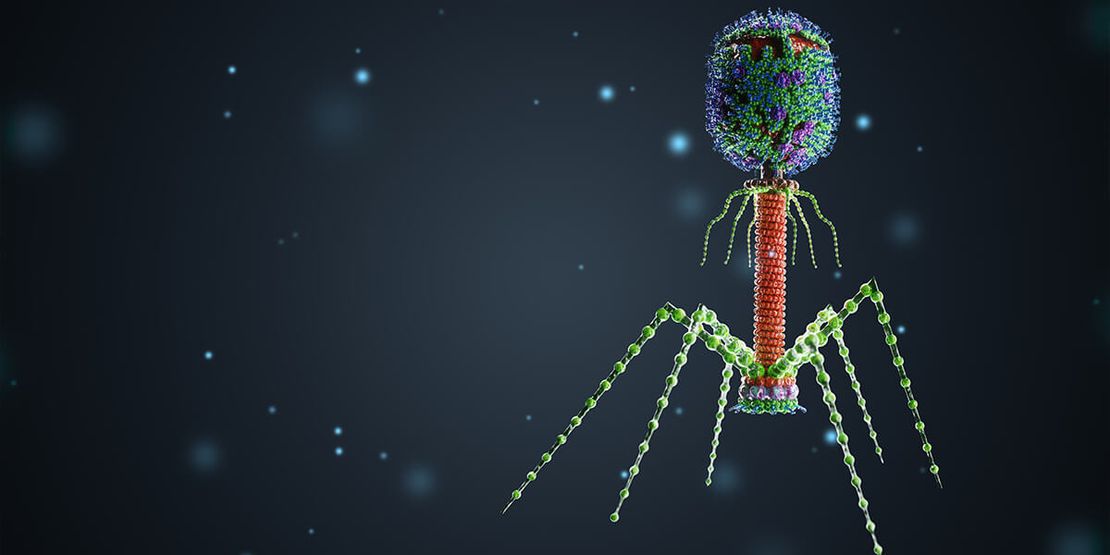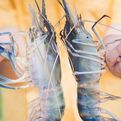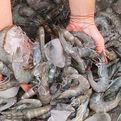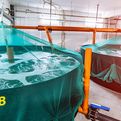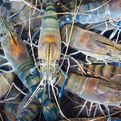Phages in Aquaculture: Exploring Pros and Cons in Shrimp Farming
In recent years, the spotlight in aquaculture, particularly in shrimp farming, has shifted towards the use of bacteriophages or phages—a class of viruses that specifically target bacteria. This innovative approach presents an alternative to antibiotics in controlling bacterial diseases.
In this article, we will delve into the pros and cons of employing phages in aquaculture, shedding light on their potential benefits and challenges.
Pros of Using Phages in Aquaculture
#1 Safe for the Environment and Animals
A significant advantage of employing phages in aquaculture lies in their environmental and animal safety. Unlike antibiotics, which may have detrimental effects on ecosystems, phages are highly specific, targeting only the bacteria responsible for the disease. Being naturally occurring, they pose no risk to the overall health of aquatic animals within the aquaculture system.
#2 Targeted Control of Bacterial Diseases
Phages exhibit remarkable specificity towards the bacteria they infect, providing a precise means of controlling bacterial diseases. This targeted approach is a powerful tool in shrimp and other aquatic animal farming, circumventing the need for broad-spectrum antibiotics that may impact beneficial bacteria.
#3 Reduced Antibiotic Resistance
The overuse of antibiotics has led to the emergence of antibiotic-resistant bacteria, posing a threat to effective disease treatment. Phages, by contrast, present a reduced risk of antibiotic resistance development. Their specificity limits the selective pressure that drives resistance, ensuring the efficacy of future treatments.
#4 Cost-Effective Solutions
Phages offer a cost-effective alternative to antibiotics. They are relatively inexpensive to produce, and their reusability further contributes to cost savings. The precision of phages in targeting specific bacteria allows for the use of smaller amounts, reducing overall expenses in disease control.
Cons of Using Phages in Aquaculture
#1 Difficulty in Identifying the Right Phage
A notable challenge in adopting phages for aquaculture is the task of identifying the appropriate phage for the specific bacteria causing the disease. With a multitude of phage types available, pinpointing the most effective one can be a complex process, potentially hindering the swift application of this method.
#2 Potential Ineffectiveness Over Time
Just as bacteria can evolve resistance to antibiotics, they can also develop resistance to phages. This evolutionary response may reduce the long-term effectiveness of phages in controlling bacterial diseases, necessitating ongoing research and adaptation of phage treatments.
#3 Limited Research and Knowledge
Despite the historical use of phages, there remains a scarcity of comprehensive research and knowledge concerning their application in aquaculture. This lack of information can pose challenges in making informed decisions about the use of phages, hindering the understanding of their full effectiveness and potential drawbacks.
Striking a Balance for Sustainable Aquaculture
In conclusion, phages stand as a promising tool for controlling bacterial diseases in aquaculture, particularly in the context of shrimp farming. While the advantages, such as environmental safety, targeted control, reduced antibiotic resistance, and cost-effectiveness, make them an appealing option, challenges like identifying the right phage, potential ineffectiveness over time, and the need for more research must be carefully considered.
As the body of knowledge surrounding phages in aquaculture expands, there is potential for their widespread use, offering a beacon of hope for improved health and well-being of aquatic animals in the ever-evolving landscape of shrimp farming.
Riley Sinclair (Digital Aqua Bear)
Hi! I'm Riley Sinclair (Digital Aqua Bear), and I'm exploring the world of digital aquaculture farms. Join me as I delve into innovative methods and sustainable practices for cultivating aquatic life in digital environments. Let's uncover the potential of digital aquaculture farms to revolutionize food production and environmental sustainability.
More From Digital Aqua Farm
Maximizing Shrimp Farming with Top IoT Systems: A Complete Review
Riley Sinclair (Digital Aqua Bear)
Safeguarding Shrimp Farms: Effective Strategies and Disease Prevention
Riley Sinclair (Digital Aqua Bear)
Maximizing Profitability: The Ultimate Smart IoT Controller for Shrimp Farmers
Riley Sinclair (Digital Aqua Bear)
Exploring the Global Landscape of Shrimp Farming: Top Producing Countries
Riley Sinclair (Digital Aqua Bear)
Future of Shrimp Farming: Embracing Indoor Cultivation
Riley Sinclair (Digital Aqua Bear)
Global Shrimp Industry: Knowing the Key Players and Dynamics
Riley Sinclair (Digital Aqua Bear)


